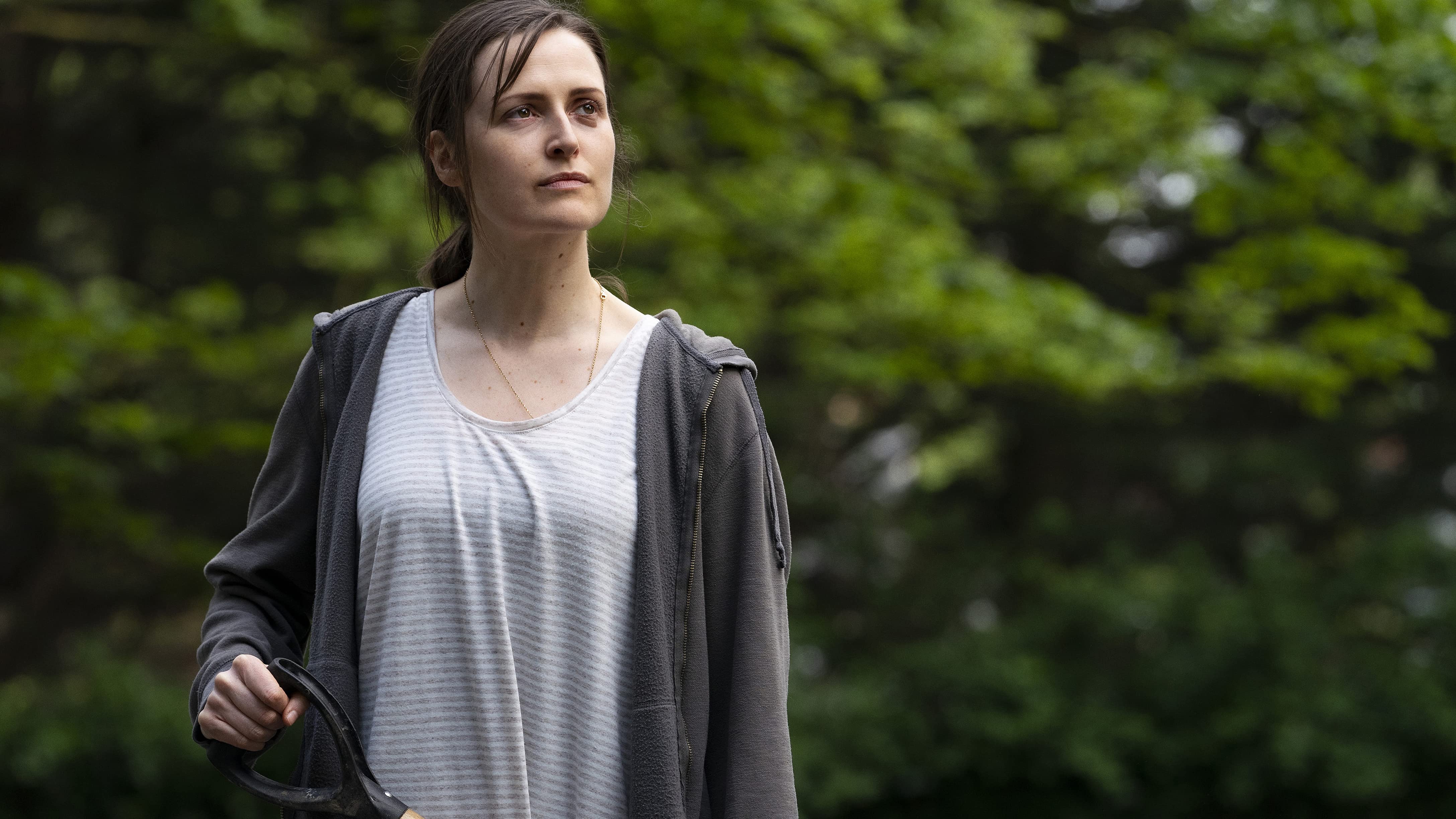What to Watch Verdict
Herself is a pretty good movie, even if its lack of personal identity won't likely last the test of time.
Pros
- +
👩👧Clare Dunne gives a commanding lead performance.
- +
👩👧The cathartic power of community is potent throughout the film.
Cons
- -
👩👧Every character feels underdeveloped as a personality, especially the supporting cast.
There’s an adage among storytellers that telling stories is a method of finding the universal in the specific, in relating a truth of humanity through a story of particular characters, places, and events. Herself feels a lot like screenwriters Malcolm Campbell and Clare Dunn and director Phyllida Lloyd took that truism to heart, as the specifics of their tale are certainly unique and unlikely to map to anyone’s actual experience, but there is a clear intent to make the circumstances of the film’s protagonist explicitly relatable for the lives of women escaping abusive relationships. The result is a film torn — as its adherence to screenplay formula clashes with its genuinely novel and laudable storytelling goals. Herself is a good film, but it’s very easy to see how it could have been great.
The film opens with Sandra (Clare Dunne) suffering an attack from her partner Gary (Ian Lloyd Anderson) that results in a broken hand and their daughter’s frantic run to get help. Sandra and her two young daughters, Emma (Ruby Rose O’Hara) and Molly (Molly McCann), are moved into temporary housing as Sandra works two jobs to try to afford a decent home for them all. Gary still has partial custody of the girls, and he uses the handoffs each weekend as an excuse to either claim he’s changed for the better or to viciously reaffirm that he has not. In searching for a way out of her present homelessness, Sandra comes across the idea of building her own tiny home, a twelve-meter by four-meter floorplan that would only cost 35,000 euros in materials to construct. When Peggy (Harriet Walker), the wealthy doctor Sandra cleans house for, learns of her intentions, she generously offers the land behind her house and loans Sandra the money to build her home.
This unfolds into a tale of communal generosity as a force for healing and moving on. A community of acquaintances pops up to assist Sandra in the construction of her little house, devoting their entire weekends to the benefit of a near stranger and demonstrating goodwill for no clear benefit to themselves. On the one hand, this makes for a heartwarming example of the idealized power of community banding together for no other reason than kindness and understanding. But from a filmmaking perspective, we barely get a glimpse into who any of these people are, despite their pervasive presence in the film. The volunteer contractor Aido (Conleth Hill) has some personality as a constant reminder of Sandra’s budgetary restraints and of general worksite safety, but that’s about as much personification the crew gets, so when communal work gives way to communal celebration after a hard day’s work, it doesn’t feel earned or emotionally gratifying as an audience member.
This equally applies to the other thrust of the plot, wherein Sandra must hide the development of her property from Gary and from the government in order to keep her options open for other housing. Dunne performs very well as a woman trying to move on from the traumas of her past and who wishes she could return to a time before her partner became abusive, but the character doesn’t have much more dimension than her roles as a survivor and mother. Sandra’s one defining trait, Dunne’s natural birthmark over her eye, is propped up as a symbol of her survivorship in concert with her status as an everywoman, but one still doesn’t grasp much of a character to Sandra or the manipulative Gary or the mentoring Peggy more than the blatant archetypes they inhabit.
These criticisms should not overshadow how well Herself comes together as a whole. It’s a brisk ninety minutes that feels like it might have been shot to be a much longer film with more depth to its characters but was instead cut for pacing as a sacrificial benefit. One really gets this impression in a late interaction with Gary’s mother, who is not introduced and was a minor player in one prior scene, but the film has a solid enough foundation that these cracks are only noticeable if you’re looking for them. This is ultimately an alternately heartwarming and heartbreaking story of a woman just trying to do her best in the aftermath of a terrible relationship, to do right by her kids, to build a life both literally and figuratively out of wood, insulation, siding, and friendship. Could Herself have established a more concrete identity for itself in its quest to convey an all too common circumstance for women leaving abusive partners? Sure it could have, but its failure to do so doesn’t entirely undercut the message the film strives for. It simply means that its lack of personal identity won’t likely survive the ravages of time and memory.
Herself is available on Prime Video.
The latest updates, reviews and unmissable series to watch and more!
Leigh Monson has been a professional film critic and writer for six years, with bylines at Birth.Movies.Death., SlashFilm and Polygon. Attorney by day, cinephile by night and delicious snack by mid-afternoon, Leigh loves queer cinema and deconstructing genre tropes. If you like insights into recent films and love stupid puns, you can follow them on Twitter.


